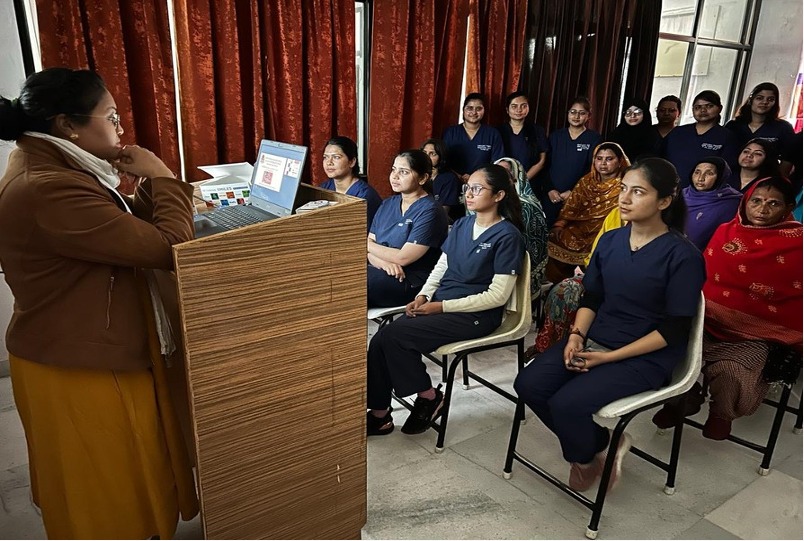
Teerthanker Mahaveer University (TMU) is committed to promoting the overall well-being of its students by ensuring access to comprehensive sexual and reproductive health services, aligning with the objectives of Sustainable Development Goal 3 (Good Health and Well-being). The University prioritizes preventive, promotive, and curative health care through its state-of-the-art Medical College and Hospital, where students can access confidential consultations, counseling, and treatment related to reproductive health issues.
TMU regularly conducts awareness programs, workshops, and interactive sessions focusing on menstrual hygiene, sexually transmitted infections (STIs), contraceptive methods, and the importance of emotional well-being in relationships. The College of Nursing, in collaboration with the Internal Complaints Committee (ICC) and Mission Shakti initiatives, organizes campaigns to empower students, particularly female students, with accurate knowledge about reproductive rights, menstrual hygiene management, and gender sensitivity.
Dedicated health care professionals, gynecologists, and counselors are available to provide guidance and address students’ queries in a safe and supportive environment. Free health check-ups, vaccination drives, and menstrual hygiene product distributions are also carried out regularly to promote healthy practices.
TMU ensures strict confidentiality and non-judgmental care, fostering a culture where students feel comfortable seeking advice and assistance. Through these sustained efforts, the University not only upholds students’ physical and mental well-being but also strengthens its commitment to the national and global vision of sustainable health for all under SDG 3 – Ensure healthy lives and promote well-being for all at all ages.
TMDCRC Initiatives
TMDCRC offers students comprehensive sexual and reproductive health services, providing free access to essential care, guidance, and reliable information. The institution regularly organizes awareness programs, seminars, and educational sessions covering topics such as sexual health, safe practices, contraception, reproductive rights, and menstrual hygiene. As part of these initiatives, free sanitary napkins are distributed during special campaigns, along with guidance on the proper use of pads, selection of safe and chemical-free materials, and environmentally responsible disposal practices. Together, these efforts create informed decision-making, promote healthy behaviors, and support overall well-being, within a stigma-free and supportive environment that encourages students to seek care and advice confidently.

